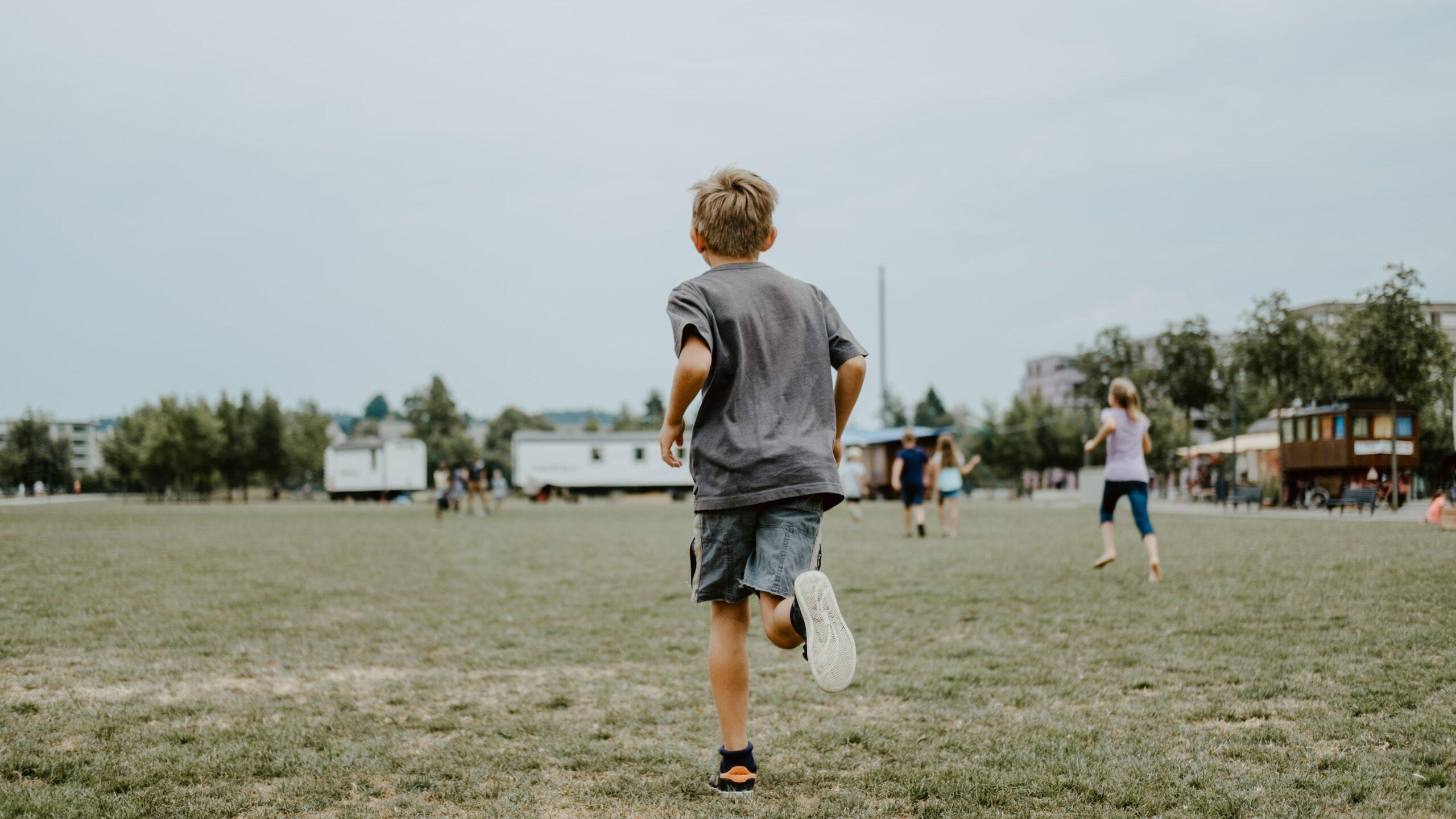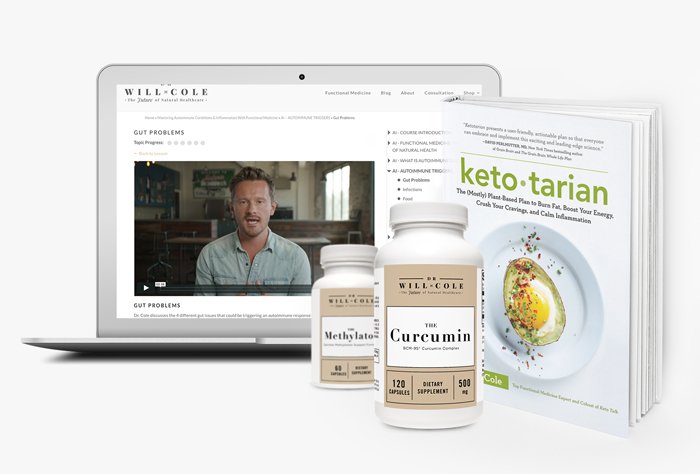11 Best Natural Remedies and Alternative Treatments For ADHD

What’s that you said? Sorry, I wasn’t paying attention! Unfortunately, attention, concentration, and hyperactivity disorders have reached epidemic proportions. According to the Centers for Disease Control and Prevention, ADHD diagnoses jumped by 41 percent (1) between 2003 and 2011, and in 2016, more than 9 percent of children between the ages of 2 and 17—more than 6 million children in total—were diagnosed with ADHD.
Unfortunately, many of these kids don’t grow out of the problem—according to the National Institutes of Health, about 4.5% of adults have an ADHD diagnosis, (2) and many more are probably undiagnosed, living with constant life-impacting issues like trouble concentrating, paying attention, remembering things, and staying calm.
ADHD is typically treated through conventional medicine through use of medication, but many wonder - can ADHD be treated naturally? The answer is yes, but the effectiveness of natural treatments will depend on the quality of herbs and supplements, as well as consistency in your lifestyle and wellness routines. Read on to discover Dr. Will Cole’s recommended ADHD natural treatments.
Article continues below
Make Your Life a Cleanse
SUBSCRIBER-ONLY GUIDES FOR GUT HEALTH, VIBRANT ENERGY, HEALTHY FOOD & CLEAN ALCOHOL
Get FREE access to these + giveaways, recipes, & discount codes in personal emails from Dr. Will Cole.
Start Your Health Journey Today
FUNCTIONAL MEDICINE CONSULTATIONS FOR PEOPLE AROUND THE WORLD
References:
- Data and Statistics About ADHD CDC October 2019. https://www.cdc.gov/ncbddd/adhd/data.htmlAttention-Deficit/Hyperactivity Disorder (ADHD) NIMH November 2017. https://www.nimh.nih.gov/health/statistics/attention-deficit-hyperactivity-disorder-adhd.shtml
- Kozielec T, Starobrat-Hermelin B. Assessment of magnesium levels in children with attention deficit hyperactivity disorder (ADHD). Magnes Res. 1997;10(2):143-148.
- Starobrat-Hermelin B, Kozielec T. The effects of magnesium physiological supplementation on hyperactivity in children with attention deficit hyperactivity disorder (ADHD). Positive response to magnesium oral loading test. Magnes Res. 1997;10(2):149-156.
- Arnold LE, DiSilvestro RA. Zinc in attention-deficit/hyperactivity disorder. J Child Adolesc Psychopharmacol. 2005;15(4):619-627. doi:10.1089/cap.2005.15.619
- Dodig-Curković K, Dovhanj J, Curković M, Dodig-Radić J, Degmecić D. Uloga cinka u lijecenju hiperaktivnog poremećaja u djece [The role of zinc in the treatment of hyperactivity disorder in children]. Acta Med Croatica. 2009;63(4):307-313.
- Handelman K, Sumiya F. Tolerance to Stimulant Medication for Attention Deficit Hyperactivity Disorder: Literature Review and Case Report. Brain Sci. 2022 Jul 22;12(8):959. doi: 10.3390/brainsci12080959. PMID: 35892400; PMCID: PMC9332474.
- Sun H, Yuan F, Shen X, Xiong G, Wu J. Role of COMT in ADHD: a systematic meta-analysis. Mol Neurobiol. 2014;49(1):251-261. doi:10.1007/s12035-013-8516-5
- Stevens LJ, Burgess JR, Stochelski MA, Kuczek T. Amounts of artificial food colors in commonly consumed beverages and potential behavioral implications for consumption in children. Clin Pediatr (Phila). 2014;53(2):133-140. doi:10.1177/0009922813502849
- Niederhofer H. Association of attention-deficit/hyperactivity disorder and celiac disease: a brief report. Prim Care Companion CNS Disord. 2011;13(3):PCC.10br01104. doi:10.4088/PCC.10br01104
- König J, Wells J, Cani PD, et al. Human Intestinal Barrier Function in Health and Disease. Clin Transl Gastroenterol. 2016;7(10):e196. Published 2016 Oct 20. doi:10.1038/ctg.2016.54
- McAfoose J, Baune BT. Evidence for a cytokine model of cognitive function. Neurosci Biobehav Rev. 2009;33(3):355-366. doi:10.1016/j.neubiorev.2008.10.005
- Lansbergen MM, van Dongen-Boomsma M, Buitelaar JK, Slaats-Willemse D. ADHD and EEG-neurofeedback: a double-blind randomized placebo-controlled feasibility study. J Neural Transm (Vienna). 2011;118(2):275-284. doi:10.1007/s00702-010-0524-2
- Faber Taylor, A., & Kuo, F. E. (2009). Children With Attention Deficits Concentrate Better After Walk in the Park. Journal of Attention Disorders, 12(5), 402–409. https://doi.org/10.1177/1087054708323000
- Uebel-von Sandersleben H, Rothenberger A, Albrecht B, Rothenberger LG, Klement S, Bock N. Ginkgo biloba extract EGb 761® in children with ADHD. Z Kinder Jugendpsychiatr Psychother. 2014;42(5):337-347. doi:10.1024/1422-4917/a000309
- Lee SH, Park WS, Lim MH. Clinical effects of korean red ginseng on attention deficit hyperactivity disorder in children: an observational study. J Ginseng Res. 2011;35(2):226-234. doi:10.5142/jgr.2011.35.2.226
- Trebatická J, Kopasová S, Hradecná Z, et al. Treatment of ADHD with French maritime pine bark extract, Pycnogenol. Eur Child Adolesc Psychiatry. 2006;15(6):329-335. doi:10.1007/s00787-006-0538-3
- Raghav S, Singh H, Dalal PK, Srivastava JS, Asthana OP. Randomized controlled trial of standardized Bacopa monniera extract in age-associated memory impairment. Indian J Psychiatry. 2006;48(4):238-242. doi:10.4103/0019-5545.31555
- Cooper RE, Williams E, Seegobin S, Tye C, Kuntsi J, Asherson P. Cannabinoids in attention-deficit/hyperactivity disorder: A randomised-controlled trial. Eur Neuropsychopharmacol. 2017;27(8):795-808. doi:10.1016/j.euroneuro.2017.05.005
- Hill MN, Patel S. Translational evidence for the involvement of the endocannabinoid system in stress-related psychiatric illnesses. Biol Mood Anxiety Disord. 2013;3(1):19. Published 2013 Oct 22. doi:10.1186/2045-5380-3-19
- Neurotransmitters Involved in ADHD PsychCentral. October 2018. https://psychcentral.com/lib/neurotransmitters-involved-in-adhd/
- Mousain-Bosc M, Roche M, Polge A, Pradal-Prat D, Rapin J, Bali JP. Improvement of neurobehavioral disorders in children supplemented with magnesium-vitamin B6. I. Attention deficit hyperactivity disorders. Magnes Res. 2006;19(1):46-52.
- Hiscock H, Sciberras E, Mensah F, et al. Impact of a behavioural sleep intervention on symptoms and sleep in children with attention deficit hyperactivity disorder, and parental mental health: randomised controlled trial. BMJ. 2015;350:h68. Published 2015 Jan 20. doi:10.1136/bmj.h68
- Cho HS, Baek DJ, Baek SS. Effect of exercise on hyperactivity, impulsivity and dopamine D2 receptor expression in the substantia nigra and striatum of spontaneous hypertensive rats. J Exerc Nutrition Biochem. 2014;18(4):379-384. doi:10.5717/jenb.2014.18.4.379
View More At Our Store
Purchase personally curated supplements
and Dr. Will Cole’s books!

The information on this website has not been evaluated by the Food & Drug Administration or any other medical body. We do not aim to diagnose, treat, cure or prevent any illness or disease. Information is shared for educational purposes only. You must consult your doctor before acting on any content on this website, especially if you are pregnant, nursing, taking medication, or have a medical condition.
Our articles may include products that have been independently chosen and recommended by Dr. Will Cole and our editors. If you purchase something mentioned in this article, we may earn a small commission.

BY DR. WILL COLE
Dr. Will Cole, DNM, IFMCP, DC is a leading functional medicine expert who consults people around the globe, starting one of the first functional medicine telehealth centers in the world. Named one of the top 50 functional and integrative doctors in the nation, Dr. Will Cole provides a functional medicine approach for thyroid issues, autoimmune conditions, hormonal imbalances, digestive disorders, and brain problems. He is the host of the popular The Art Of Being Well podcast and the New York Times bestselling author of Intuitive Fasting, Ketotarian, The Inflammation Spectrum and the brand new book Gut Feelings: Healing the Shame-Fueled Relationship Between What You Eat and How You Feel.

Gut Feelings
Healing The Shame-Fueled Relationship
Between What You Eat And How You Feel
